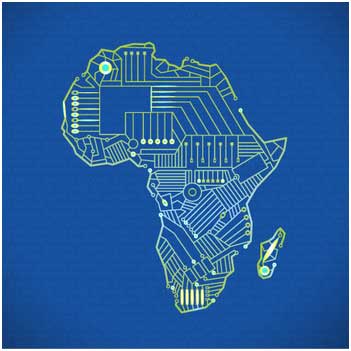Could Africa’s Marketplace Platforms Help Upskill a Generation for the Digital Age?

NAIROBI, Kenya, Feb 10 (IPS) - By 2030, sub-Saharan Africa will be home to more than a quarter of the world's population under 25. Between 15 and 20 million young people will enter the African workforce each year, joining the ranks of the millions of currently under- and unemployed people searching for better livelihoods.
Does this massive growth present an urgent challenge or an extraordinary opportunity? It depends in part on whether young people can acquire the skills they will need to participate in an increasingly digital economy.
One pathway to learning these skills has, until now, gone mostly under the radar, but it may be a surprisingly powerful ally in meeting this challenge.
Some of the same digital marketplace platforms that are changing economic sectors and connecting workers to gigs are now putting training at the core of their operations. This upskilling has become essential to providing the levels of service and quality customers demand.
There are currently more than 250 marketplace platforms active in sub-Saharan Africa alone. They touch many economic sectors: ride hailing and delivery, freelancing, services and trades, even agriculture, the biggest employer on the continent.
When these platforms train, they train broadly. While coding or IT skills are an important component, many platforms train in a variety of subject matters, using a variety of methods.

Some platforms offer training in digital and financial literacy; Uber has partnered with Old Mutual to deliver money management classes to driver-partners. Some platforms teach specific vocational skills, like the Kenyan service platform Lynk, which prepares people to be everything from carpenters to beauty technicians.
Other platforms teach soft skills, like Nigerian ride-hailing platforms Gokada and MAX, which invest extensively in customer service training while onboarding drivers.
Importantly, all of these skills are portable. They can be applied on and off the job, and, once transferred, they can't be taken away. If the scale and quality of platform-led upskilling continues to rise, it could have a transformational impact on economic growth and sustainable development in the region.
With the support of the Mastercard Foundation, Caribou Digital has produced a white paper analyzing the potential of training programs offered by platforms.
We found three broad approaches in practice. The first is of course to provide online training materials, ranging from simple "FAQs" and blog posts to videos and tutorials.
Notably, we found many using innovative approaches, like Sendy, an African delivery and logistics platform that has designed videos for drivers to watch at mechanic workshops or gas stations while their bikes are being maintained.
Some of the larger platforms offer training moments within workflows—training that happens almost without the user's awareness. For example, the African e-commerce site Jumia uses AI to offer sellers a "Content Score'' that automatically measures the quality of a product's content listing, allowing small merchants to improve their advertisements in real time.
However, we were most surprised by the amount of coaching that happens face to face. For example, the Kenyan services platform Lynk has set up Fundi Works, a production workshop that allows carpenters to train with a master carpenter to improve their techniques.
They are also trained on procurement of raw materials, storage practices, and the processes involved in furniture design, to ensure high quality finished products.
Meanwhile the Nigerian ride-hailing platform Gokada has partnered with a defensive driving academy that has reduced training time in the classroom and the field from seven days to three.
Almost every platform we spoke to, large and small, relies on some degree of interpersonal training to upskill its workers and suppliers.
The influence of platforms on all kinds of markets is likely to grow. Not all of this influence is good—platformization has raised important concerns about competition, worker safety, wages, and consumer choice.
But if platforms' commitment to training correlates with their growth, their influence on skills acquisition around the world could have a major positive impact. Our research shows that marketplace platforms can be powerful new partners for governments, educational institutions, and worker organizations looking to upskill the continent's workforce.
It is therefore time to foster collaboration around what we have dubbed "platform-led upskilling". With a dedicated community and shared perspective comes the opportunity to compile best practices across industry sectors and training approaches as well as to analyze returns on investment to platforms, and the efficacy of skills training and improved livelihoods among their workers and suppliers.
A lot of this evidence is currently hidden and fragmented, held inside different platforms' vendor support departments. The development community can act as a catalyst and partner with platforms to more systematically gather and share this evidence.
Preparing a generation of young Africans with the skills for the digital age will require all hands-on deck. Platforms won't replace investments in improving and extending schools, NGOs, and training academies, or in advancing employee training.
But the reach of platform-led upskilling is growing along with the rise of platforms.
The question "Could Africa's marketplace platforms help upskill a generation?" is still open, but the answer is worth pursuing systematically and vigorously. Platform-led upskilling is a promising way in which platforms can act not just as disruptors but as stewards of the markets in which they play.
© Inter Press Service (2020) — All Rights ReservedOriginal source: Inter Press Service
 Global Issues
Global Issues